Portugese Water Dog
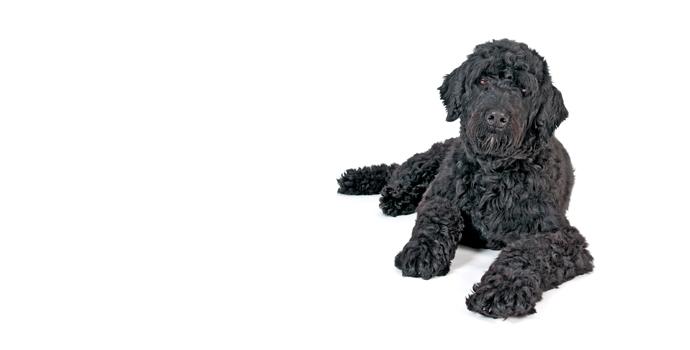
In my own words
I love you, I really, really do. I think you’re wonderful and I adore spending time in your company, but I have to be honest. My one big love in life is… water! I just can’t help myself, when I see water I like to leap straight into it. You just can’t beat the feeling of splashing about in a pond, lake, river or even the sea! I’m not fussy; any kind of water will do as long as it’s wet. I tried to jump into a frozen pond once but luckily my human stopped me just in time! If you’re a fisherman we’re going to get on great. Did you know people used to call me ‘the fishing dog’?
As well as swimming I love to run and jog. I’m pretty energetic so I prefer to stay active. I’m one happy dog when my days are filled with long walks and plenty of exercise.
Don’t worry though – I can relax sometimes too! I’m besotted with my family and think humans are great company, so I love to unwind with them at home. There’s nowhere I’d rather be than next to you.
My ideal owner(s)
Single people
Families
People with an active lifestyle
People who live in the country or on the coast
Fishermen
What they say about me
Intelligent
Loves to swim
Fun loving and easy going
Hard workers
Protective
Please read on to find out more about me, and whether I’ll be someone you’ll be happy to live with for the next 15 years
Is this Portuguese Water Dog for you?
Test your knowledge about the Portuguese Water Dog
Information essential about the Portugese Water Dog
Kennel Club Group:
Working
Size:
Large: Weight Male 42 – 60 lb (19.5 – 27 kg) Female 35 – 50 lb (16 – 23 kg)
Height Male 20 – 23” (51 – 58.5 cm) Female 17 – 21” (42 – 53 cm)
Popularity:
The Portuguese Water Dog is an incredibly rare breed of dog as it came close to extinction during World War II and the numbers of the breed have not recovered very well. For this reason, the Portuguese Water Dog is not a popular breed.
Breed History:
As the name suggests, the Portuguese Water Dog originates from Portugal. This is a very old breed of dog, which has been written about since the 11th century when monks wrote about a Portuguese Water Dog swimming to rescue a sailor drowning after a ship wreck.
While the exact breed origins of the Portuguese Water Dog are not known, it is thought that they descend from the same breeds which gave rise to the poodle, Puli and Kerry Blue Terrier.
Unsurprisingly, this breed had a natural affinity with water and loves to swim. For this reason, the Portuguese Water Dog was commonly owned by fishermen and sailors, and the breed has also been known as ‘The Fishing Dog’.
During the late 19th Century, the Portuguese Water Dog became an incredibly popular dog in Portugal, after King Carlos I fell in love with the breed and gained his own Portuguese Water Dogs. By the 1930s a Portuguese shipping heir by the name of Vasco Bensaude started a breeding program for the Portuguese Water Dog. Sadly, the breed suffered during the Second World War and the number of Portuguese Water Dogs vastly diminished. To this day, the breed is still extremely rare.
Character:
Your Portuguese Water Dog is incredibly loyal to his family and also very alert, making him a very good watch dog as he is not only aware of his surroundings and tuned in to possible danger, but he also cares deeply for his owner and wants to protect the family and household. A good companion dog, you Portuguese Water Dog loves to be around people and wants nothing more than to be close to you, so he’s not well suited to life as a kennel dog. Be sure to integrate your Portuguese Water dog with the family and he will be one happy dog! While his drive to protect the family and home does make him a good watchdog, it also means that he can be wary of strangers and he should therefore be socialised from an early age and throughout his life. The Portuguese Water Dog can be aggressive towards other dogs, so it is important to socialise him with other dogs as well as with people.
Temperament:
A highly intelligent dog, your Portuguese Water Dog is friendly and confident. He is not only incredibly smart, but also has a lot of energy, so it is important to give him plenty of mental and physical stimulation through daily exercise and training. They do not do well with a sedentary lifestyle as they will become bored and may show destructive behaviour. Your Portuguese Water Dog’s favourite hobby is to swim – he loves nothing more than jumping into water, no matter how cold or dirty it might be! For this reason, Portuguese Water Dog owners need to exercise caution around frozen ponds and lakes as the breed tends to leap before it thinks when it comes to playing in water. Your Portuguese Water Dog is an excellent retriever and will thoroughly enjoy a game of fetch. However, this means they have a tendency to mouth objects, which they will do excessively if they are bored or suffering from separation anxiety.
Conformation:
The Portuguese Water Dog has a solid frame with a muscular body that is slightly longer than it is tall. The legs are strong and powerful with webbed feet which help the dogs swim through strong currents. The head should be large, with a round skull and boxy muzzle. The eyes are dark and the ears hang quite close to the head. The tail is tapered and carried high, in a curl. The Portuguese Water dog has a thick, single coat which can be wavy or curly.
Colour:
The Portuguese Water Dog’s coat can come in black, white, brown or a combination of the three.
Training:
As your Portuguese Water Dog is so intelligent and fun loving, training is a pleasure. Many Portuguese Water Dogs enjoy competitive obedience and agility and they are also used as therapy and assistance dogs. It is important that trainers are firm yet fair in order to establish over the dog, as the breed can be dominant. With reward based training and a confident trainer, your Portuguese Water Dog will excel at training.
Care:
The Portuguese water dog sheds little no to no hair, making the breed a great option for anyone with allergies. However, the thick coat does need some work to keep it healthy. daily brushing or combing is necessary in order to prevent matting and knots from forming. The coat has a resistant coating which bathing can damage, so only bathe your Portuguese Water Dog when necessary. You might want to consider giving your Portuguese Water dog a Retriever Cut as this is easier to manage.
Health:
Generally a healthy breed, the Portuguese Water dog has an average lifespan of approximately 15 years. They are prone to eye infections and diseases such as Progressive Retinal Atrophy, a genetic eye disease for which there is currently no cure and results in blindness. Some dogs can also develop hip dysplasia. Be sure to choose your dog or puppy form a reputable breeder in order to get a healthy, happy Portuguese Water Dog.
You may also like:
If you like Portugese Water Dogs, you may be interested in breeds of the same size »

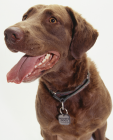



If you like Portugese Water Dogs, you may like other breeds with similar characteristics »




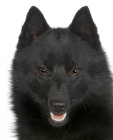
If you like Portugese Water Dogs, you may be interested in these other working dogs »

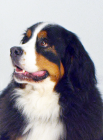
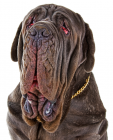
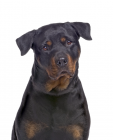
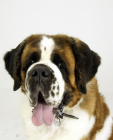
Advice on choosing your breed »
Find an animal shelter or rescue home where a Portugese Water Dog is waiting for a new home »
The following grid gives a fast track review which covers all breeds. You can apply it to help you decide if a Portuguese Water Dog is suitable for you, the environment where you live, your personality and your lifestyle. On the grid, 1 = strongly disagree, and 5 = strongly agree. For example, if you are looking for a dog that likes to swim, look down the list under ‘activities’ and you will see that Portuguese Water Dogs are keen swimmers, scoring 5. If you are looking for a dog that would make a good watch dog, look under ‘role and suitability’ and you’ll see a Portuguese Water Dog would be an excellent choice, also scoring 5. You might like to save or print off this section and keep it for reference while you check some other breeds before making your choice.
Add your own ratings on this breed »
|
*PLEASE NOTE: All our breed profiles are general, and all dogs are individuals. Always talk to the breeders and meet the owners you are buying from. Try to meet the dog and its parents if it is a puppy in their home environment.














